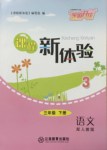题目内容
Thousands of children said they were forced to practice the piano.
A.to question B.to be questioned C.questioned D.questioning
C

 芝麻开花课程新体验系列答案
芝麻开花课程新体验系列答案 怎样学好牛津英语系列答案
怎样学好牛津英语系列答案
You might think that “global warming” means nothing more than a rise in the world’s temperature But rising sea levels caused by it have resulted in the first evacuation(撤离)of an island nation—the citizens of Tuvalu will have to leave their homeland.
During the 20th century , sea level rose 8—12 inches. As a result ,Tuvalu has experienced lowland flooding of salt water which has polluted the country’s drinking water.
Paani Laupepa , a Tuvaluan government official ,reported to the Earth Policy Institute that the nation suffered an unusually high number of fierce storms in the past ten years .Many scientists connect higher surface water temperatures resulting from global warming to greater and more damaging storms.
Laupepa expressed dissatisfaction with the United States for refusing to sign the Kyoto Protocol, an international agreement calling for industrialized nations to reduce their greenhouse gas emissions(导致温室效应的气体排放),which are a main cause of global warming . “By refusing to sign the agreement ,the US has effectively taken away the freedom of future generations of Tuvaluans to live where their forefathers have lived for thousands of years,” Laupepa told the BBC.
Tuvalu has asked Australia and New Zealand to allow the gradual move of its people to both countries .
Tuvalu is not the only country that is vulnerable (易受影响的)to rising sea levels .Maumoon Gayoon ,president of the Maldives ,told the United Nations that global warming has made his country of 311,000 an “endangered nation”.
【小题1】The text is mainly about .
| A.rapid changes in earth’s temperature |
| B.bad effects of global warming |
| C.moving of a country to a new place |
| D.reasons for lowland flooding |
| A.greenhouse gas emissions in industrialized nations |
| B.higher surface water temperatures of the sea |
| C.continuous global warming |
| D.rising sea levels |
| A.agree to reduce its greenhouse gas emissions |
| B.sign an agreement with Tuvalu |
| C.allow Tuvaluans to move to the US |
| D.believe the problems facing Tuvalu were real |
| A.Australia | B.New Zealand | C.the Maldives | D.the United States |
Scientists who try to predict earthquakes have gotten some new helpers recently—animals.
That’s right, animals. Scientists have begun to understand what farmers have known for thousands of years. Animals often seem to know in advance that an earthquake is coming, and they show their fear by acting in strange ways. Before a Chinese quake in 1975, snakes awoke from their winter sleep early only to freeze to death in the cold air. Cows broke their halters (缰绳) and tried to escape. Chickens refused to enter their cage. All of this unusual behavior, as well as physical changes in the earth, warned Chinese scientists of the coming quake. They moved people away from the danger zone and saved thousands of lives.
One task for scientists today is to learn exactly which types of animal behavior predict quakes. It’s not an easy job. First of all not every animal reacts to the danger of an earthquake. Just before a California quake in 1977, for example, an Arabian horse became very nervous and tried to break out of his enclosure. The Australian horse next to him, however, remained perfectly calm. It’s also difficult at times to tell the difference between normal animal restlessness and “earthquake nerves”. A zoo keeper once called earthquake researchers to say that his cougar had been acting strangely. It turned out that the cat had an upset stomach.
A second task for scientists is to find out exactly what kind of warnings the animals receive. They know that animals sense far more of the world than humans do. Many animals can see, hear, and smell things that people do not even notice. Some can sense tiny changes in air pressure, gravity, or the magnetism of Earth. This extra sense probably helps animals predict quakes.
A good example of this occurred with a group of dogs. They were shut in an area that was being shaken by a series of tiny earthquakes. (Several small quakes often come before or after a large one.) Before each quake a low booming sound was heard. Each boom caused the dogs to bark wildly. Then the dogs began to bark during a silent period. A scientist who was recording quakes looked at his machine. It was acting as though there were a loud noise too. The scientist realized that the dogs had reacted to a booming noise. They also sensed the tiny quake that followed it. The machine recorded both, though humans felt and heard nothing.
In this case there was a machine to monitor what the dogs were sensing. Many times, however, our machines record nothing extraordinary, even though animals know a quake is coming. The animals might be sensing something we measure but do not recognize as a warning. Discovering what animals sense, and learning how they know it is a danger signal, is a job for future scientists.
【小题1】Through the passage the writer hopes to explore __________.
| A.why animals send a danger signal before an earthquake |
| B.how animals know when an earthquake is coming |
| C.why animals not men have good sense of danger |
| D.how much animals know about an earthquake |
| A.chickens refused to go out of their cage |
| B.snakes were frozen to death in their caves |
| C.snakes awoke from their winter sleep earlier |
| D.cows broke their halters and escaped from their sheds |
| A.An Arabian horse tried to escape from his enclosure. |
| B.A cougar had an upset stomach unexpectedly. |
| C.An Australian horse was perfectly calm. |
| D.A cat acted very strangely in a zoo. |
| A.find out that the machine could record unusual happenings |
| B.compare the reactions of animals and those of humans |
| C.prove that animals could sense more than humans |
| D.find out what exact warnings animals sent |
In the decade(十年)of the 1970s, the United Nations organized several important meetings on the human environment to study a very serious problem.We humans are destroying the world around us.We must learn to protect them, or life will be very bad for our children and grandchildren.
There are several major aspects to this problem.
Population
Most problems of the environment come from population growth.In 1700 there were 635 million people in the world; in 1900 there were 1.6 billion; in 1950, 2.5 billion; and in 1980, 4.4 billion.In the year 2010 there will be 7.3 billion.More people need more water, more food, more wood, and more petroleum.
Distribution
Scientists say there is enough water in the world for everyone, but some countries have a lot of water and some have only a little.Some areas get all rain during one season.The rest of the year is dry.
Petroleum
We are using up the world’s petroleum.We use it in our cars and to heat our buildings in winter.Farmers use petrochemicals to make the soil rich.They use them to kill insects on those plants.These chemicals go into rivers and lakes and kill the fish there.Thousands of people also die from these chemicals every year.Chemicals also go into the air and pollute it.Winds carry this polluted air to other countries and other countries.
Poverty
Poor farmers use the same land over and over.The land needs a rest so it will be better next year.However, the farmer must have food every year.Poor people cut down trees for firewood.In some areas when the trees are gone, the land becomes desert.However, people need wood to cook their food now.Poor people cannot save the environment for the future.
We now have the information and the ability to solve these huge problems.However, this is not a problem for one country or one area of the world.It is a problem for all humans.The people and the nation of the world must work together to protect the world’s resources.No one controls the future, but we all help make it.
【小题1】According to the passage, our world is being destroyed mainly because ______.
| A.pollution is getting worse and worse |
| B.population are increasing greatly |
| C.we humans are using up all of our natural resources |
| D.distribution is not reasonable. |
| A.having things in the right place at the right time. |
| B.cutting down forests and selling them to other countries. |
| C.building water systems to carry water to farms. |
| D.conserving our natural resources |
| A.The World Being Destroyed |
| B.A Serious Problem We Should Pay Attention to |
| C.Aspects That Destroyed Our World |
| D.Conserving the World’s Natural Resources |
Attending a university is an important part of a person’s life. Today, many people go to a university to study and train for a future job in subjects like law, medicine, or education. But the university is not a modern invention. It has a history that is over a thousand years old.
The world’s oldest university, Al-Azhar, is in Cairo, Egypt. It was first built as a mosque in A.D. 972. A few years later, learners and teachers began meeting in the mosque in “tutoring circles”. They read and talked about the subject of law. Around 988, leaders in the city of Cairo decided to create a school for higher learning and the University of Al-Azhar was founded.
At Al-Azhar, there were many university ‘firsts.’ Courses were created. The earliest ones taught at Al-Azhar were in law and religion. In a course, students read and studied with the teacher, but there was also free discussion. Often, students and teachers talked about a topic, and there was no ‘right’ answer. Finally, scholars from around the world came to Al-Azhar to teach and do research. At the university, people studied the past, but it was also a place for sharing new ideas.
Over a thousand years later, Al-Azhar is still an important university in the world. Its library contains more than 250,000 of the world’s oldest and most valuable books. Today, many of the world’s most important universities such as Oxford and Harvard still follow the traditions started at Al-Azhar.
【小题1】What’s this passage mainly about?
| A.The history of the world’s oldest university. |
| B.The importance of attending a university. |
| C.The relationship between university and future job. |
| D.The invention of a modern university. |
| A.a hundrend | B.hundreds of | C.a thousand | D.thousands of |
| A.Oxford | B.Cambridge | C.Harvard | D.Al-Azhar |
A. A series of lessons. C. A period of time.
C. A series of actions. D. A group of professors.
【小题5】What’s the main idea of the last paragraph?
| A.How many books are in the Al-Azhar’s library. |
| B.How valuable the Al-Azhar’s books are. |
| C.Why Oxford and Harvard still follow Al-Azhar’s pattern. |
| D.How Al-Azhar still holds an important role in the world. |